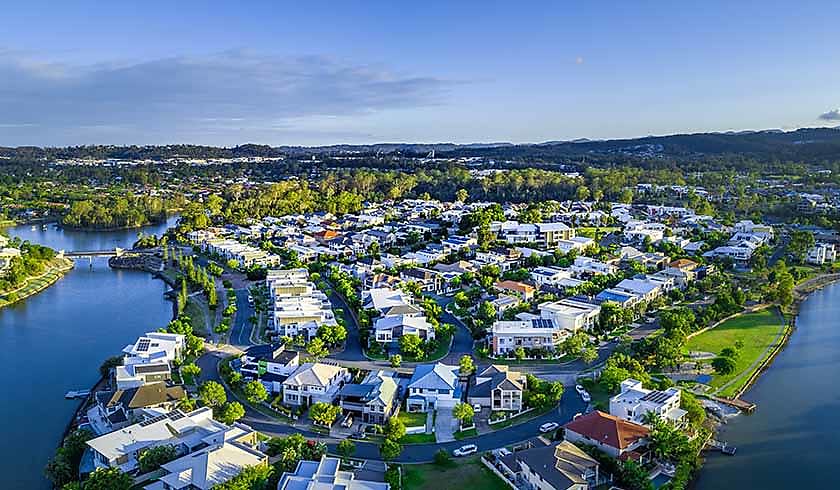Why has Qld dethroned Victoria in the investor market?
It’s been a long time coming, but Queensland has finally overtaken Victoria as Australia’s second-largest investor market. But what has driven this change?

Queensland has overtaken Victoria in the investor market and is now second only to NSW.
Money.com.au’s home loans expert, Mansour Soltani, said Queensland offers the “perfect mix” of lifestyle, affordability and growth opportunities for investors.
Data from Money.com.au showed that investor loan numbers in Queensland grew nearly five times the rate of Victoria’s to reach 24 per cent annually, compared to 5 per cent in Victoria.
In September, Queensland recorded 4,593 investor loans, nearly 700 more than its Victorian counterpart.
Additionally, the average investor loan in Queensland increased by 11 per cent year-on-year, rising from $483,429 to $536,638. In contrast, the average investor loan in Victoria saw a more modest growth of 2.7 per cent, climbing from $539,012 to $553,667.
Money.com.au’s analysis showed that if the same annual growth rate of 24 per cent remains, Queensland will have 10,338 more investor loans than Victoria by this time next year.
“Queensland is cementing its position as a property investor’s dream,” Soltani said.
But what has been driving the shift?
1. Taxes
Property investors entering the Queensland market have paid fewer and lower taxes than in Victoria.
In Queensland, the general land tax for properties worth $800,000 is about $2,500 per year compared to $3,450 in Victoria.
Additionally, the January changes in Victoria’s tax-free land, where the Victorian government lowered the threshold for land tax payments from $300,000 to $50,000 on investment properties as part of the temporary COVID-19 debt levy impacted property investors greatly and prompted them to look at other markets.
As a result, Victorian investors saw an annual cost increase of $1,175 for an unimproved land value of $500,000. This change was projected to impact nearly half a million investors and generate $4.74 billion over the next four years.
In comparison, Queensland inventors are set to pay land taxes at a $600,000 threshold.
Victorians with second homes also saw a new flat tax being imposed up to $975 as part of the state’s COVID Debt Repayment Plan.
To ease investors’ pockets, the Victorian government recently introduced a temporary stamp duty concession for off-the-plan strata properties which may reduce investors’ upfront costs in the short term.
2. Migration rates
Strong migration rates have also played a part in Queensland becoming a key player in the investment property markets as migration leads to infrastructure spending, higher rental yields and lower vacancy rates – which are factors that attract property investors.
According to Money.com.au, Queensland has had the highest net interstate migration in every quarter since 2017 as in the year to March 2024, Queensland gained a net 30,930 residents from interstate, while Victoria’s net gain was just 537.
This is a continuous growth from the previous years when in September 2023, Queensland recorded 32,625 new interstate residents and 87,954 from overseas.
3. Strong regional markets
In addition to having an attractive capital city, Queensland’s regional markets also offer strong growth opportunities and rental yields for investors.
Soltani said that regional markets like Townsville, Cairns, Mackay and Gladstone have seen rental yields rise by 5–20 per cent year-on-year, driven by limited housing supply and increasing demand.
“In some Queensland regional towns, investors can buy properties under $500,000 and make profits from rents from the outset,” he said.
4. Short-term and holiday rental
Due to its location and all-year good weather, Queensland has been an appealing tourist destination that can create profitable opportunities for short-term and holiday rentals.
While GST and additional levies apply to these types of properties, they can still deliver significant returns with South-East Queensland accounting for two-thirds of all short-term rentals in the state, making it a hotspot for short-term rental investments.
Brisbane-based buyer’s agent Andrew Pizzino said a one-bedroom apartment in Noosa can generate $1,000 per night during peak season, covering costs for the remainder of the year, including outgoings and taxes.
“However, most investors choose to hold long-term leases on these properties for six to nine months of the year, then convert them back to the short-term rental market during peak seasons to offset low-season losses,” Pizzino said.
In Victoria, a new levy will apply to short stays in Victorian property. The new bill introduces a 7.5 per cent levy from 1 January 2025 on short-stay accommodation bookings, including bookings made through platforms such as Airbnb and Stayz.
The Victorian government said that 25 per cent of the revenue raised by the short-stay levy will be invested in regional Victoria.
5. Infrastructure boom
In addition to offering low taxes and strong rental yield to investors, Queensland has a large infrastructure pipeline that draws property investors in.
The state currently lists over 300 transport infrastructure projects and hundreds of new residential developments in Brisbane’s outer suburbs and regional towns.
In addition, the upcoming Brisbane 2032 Olympic Games have seen a boom in state public infrastructure projects, such as the Cross River Rail, the Gold Coast Light Rail Extension, and the Bruce Highway Upgrade, which span the corridor from Brisbane to Cairns.
The games are forecast to drive $8.1 billion in total benefits for Queensland and $17.61 billion across Australia.
6. Lifestyle
Called the Sunshine State, Soltani said Queensland has everything to seduce property investors in quest of an attractive lifestyle.
He outlined Queensland’s warm climate, beaches and natural landscape being assets for people wanting to live, invest and retire in the state.
“The ‘Queensland effect’ is driving strong demand for both owner-occupied and investment properties, especially in regional areas and along the coastline where many Australians will retire,” he said.
